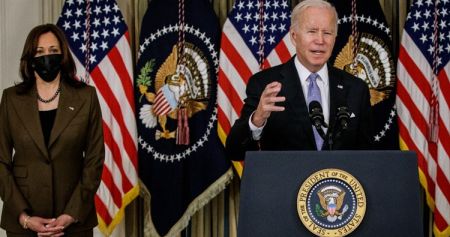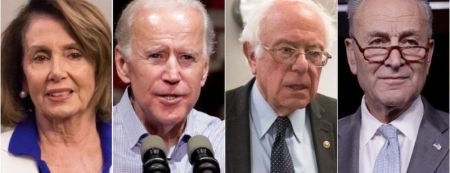As Consumer Prices spike, experts fear is a wage-price spiral will raise costs further in the future
WASHINGTON, D.C. (Texas Insider Report) — Increasing at the fastest rate in 40 years while eating into U.S. wages and paychecks – and heaping further pressure on President Joe Biden and Congressional Democrats to address what has become the biggest threat to the U.S. economy – inflation continued its increase in December, exceeding expectations the Labor Department announced earlier today.
In what is now the largest annual spike seen since June 1982 – when inflation hit 7.1% – the Consumer Price Index surged 0.5% in December alone and 7.0% for the twelve months ending in December.
Home Food Prices rose 6.5% over the last 12 months, compared to a 1.5% annual increase over the last 10 years.
 While all of the major Grocery Store Food Group Indexes have increased during the first year of Mr. Biden's presidency, by far the largest increase was in the index for meats, poultry, fish & eggs – which rose 12.5% over the year
While all of the major Grocery Store Food Group Indexes have increased during the first year of Mr. Biden's presidency, by far the largest increase was in the index for meats, poultry, fish & eggs – which rose 12.5% over the yearAnd despite vast infusions of government aid intended to help consumers through the COVID-19 CoronaVirus pandemic, supply chains have remained squeezed by shortages of workers and raw materials, which has further magnified price increases and pressures.
The Core CPI – which excludes food and energy costs that can over-exaggerate inflation – picked up 0.6% for the month following a 0.5% increase in November, marking the sixth time in the last nine months it has increased by at least 0.5%.
Housing prices, as well as used cars and trucks, contributed the most to the inflation index's surge in consumer items overall.
The energy index declined in December by 0.4%, ending a long series of increases that American consumers have felt most intensely at the gas pump in the last year.
With Federal Reserve Chairman Jerome Powell advocating to remove the word “transitory” when describing the past year's inflation patterns – saying the term does not reflect reality – there’s a growing perception among the public that rising prices are no longer just a temporary phenomenon.
Testifying before the Senate Committee on Banking, Housing & Urban Affairs Tuesday, Powell (below left with Biden,) warned that the Federal Reserve is constrained in its ability to curb inflation by the current “era of persistently low interest rates.”
 Ordinarily, the Fed can hike rates to slow down an overheating economy.
Ordinarily, the Fed can hike rates to slow down an overheating economy.Recovering from the pandemic, many areas of the economy have rebounded, but Powell noted that supply chains will continue to struggle to meet demand across consumer sectors and result in inventory shortages on store shelves and prolonged shipping delays.
"We know that high inflation exacts a toll, particularly for those less able to meet the higher costs of essentials like food, housing, and transportation,” he said.
While price gains could slow at some point in the future as snags in supply chains ease, most economists say inflation won’t be falling anytime soon. In the meantime, companies large and small are adapting as best they can.
Businesses struggling to hire employees have hiked pay, but rising prices for goods and services have eroded those income gains for many Americans. Lower-income families have felt it the most and polls show inflation is now sometimes displacing even the CoronaVirus as a public concern.
Those concerns over continued high inflation has put President Biden on the defensive. His administration, echoing officials at the Fed, initially suggested that price increases would be temporary.
But as inflation has persisted, Mr. Biden and some Congressional Democrats have begun to blame large corporations – saying meat producers and other industries are taking advantage of pandemic-induced shortages to drive up prices and profits.
 But even some left-of-center economists disagree with that diagnosis.
But even some left-of-center economists disagree with that diagnosis.One trend experts fear is a wage-price spiral – which happens when workers seek more pay to offset higher costs, and then companies raise costs further to cover that higher pay.
The United States hasn’t seen anything like it since the early 1980s.
























